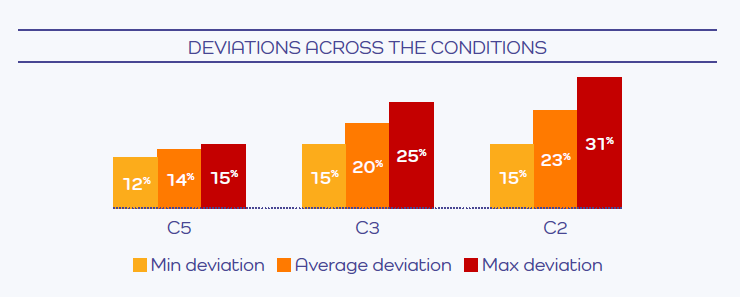The white paper titled "Broken Trust – Energy Efficiency and the Refrigeration Industry", recently published by Eurovent Certita Certification, offers a critical analysis of product performance discrepancies within the European refrigeration sector. It emphasizes the significance of reliable performance data for refrigeration products and highlights how underperformance, particularly of CO2 refrigeration systems, undermines energy efficiency and trust across the industry.
Key Objectives and Overview
The central aim of the white paper is to explore the accuracy of declared product performance data and its implications. The document focuses on the discrepancy between declared and actual product performance, using heat exchanger performance as a case study. It addresses the factors that contribute to this disparity, including the absence of mandatory independent verification for performance claims by manufacturers.
The rise in CO2 refrigeration systems, driven by regulatory pressure to adopt low Global Warming Potential (GWP) refrigerants, is a focal point. Although CO2 has a proven track record, the current technology lags behind the systems it replaces. This creates opportunities for deviations between declared and expected performance, particularly for uncertified products.
The Problem of Underperformance
One of the paper’s primary concerns is underperformance in refrigeration systems, which can lead to several issues:
- Non-compliance with regulations: Products that do not meet performance expectations may violate industry standards, resulting in penalties.
- Increased operational costs: Energy consumption rises when systems underperform, leading to higher long-term costs for users.
- Environmental consequences: Increased energy use results in a larger carbon footprint, contradicting the goals of decarbonization efforts.
- Damage to reputations: Both the product and the broader refrigeration industry face reputational risks due to unreliable performance data.
In short, the entire industry suffers when products do not perform as expected, and the white paper warns that even small discrepancies can have significant consequences.
Performance Data Analysis
The white paper presents a detailed analysis of performance data for CO2 gas coolers. A study of 48 non-certified products revealed significant deviations between declared and expected performance. The discrepancies ranged from 12% to as high as 31%, with an average inaccuracy of 23%. This wide variation underscores the risks posed by relying on self-assessed performance data.
Notably, the analysis also highlights that underperformance is not confined to CO2 products. The paper suggests that the issue is pervasive across various refrigeration and HVAC systems. This emphasizes the importance of independently verified performance data to ensure that products perform as advertised.
Building Trust: The Role of Certification
To mitigate the risks associated with inaccurate product performance data, the white paper advocates for greater reliance on third-party certification and independent laboratory testing. Voluntary certification programs like Eurovent Certified Performance offer an impartial assessment, reducing the potential for bias. The paper outlines several strategies to help industry stakeholders make informed decisions:
- Certification over self-assessment: Opting for certified products ensures that performance data has been independently verified, offering greater reliability.
- Holistic evaluation of systems: While CO2 may be the preferred refrigerant, it’s essential to consider the overall energy performance of systems.
- Long-term cost considerations: Purchasing decisions should prioritize energy efficiency and operational costs over initial savings, as a lower upfront cost can lead to significant energy expenses later.
Conclusion and Recommendations
The white paper concludes that the refrigeration industry must address the issue of overstated performance to maintain trust and meet decarbonization goals. Independent verification, such as that provided by third-party certification, plays a pivotal role in building this trust.
To further safeguard against underperformance, the document recommends that certification bodies like Eurovent Certified Performance should be used as a benchmark for product reliability. The call to action is clear: manufacturers should embrace certification, and industry players should prioritize independently verified data when selecting products for refrigeration projects.
Final Thoughts for the Refrigeration Industry
For professionals in the refrigeration sector, this white paper is a wake-up call. The increasing demand for energy efficiency, sustainability, and compliance with regulations means that trust in product performance data is more critical than ever. By embracing voluntary certification and focusing on long-term system efficiency, the industry can ensure that its products meet both environmental and economic targets.
This detailed review provides insights into the challenges and opportunities presented in the white paper, urging industry professionals to prioritize performance verification to meet the growing demands of sustainability and energy efficiency.
To read and download the full document, visit: Broken Trust: Energy Efficiency and the Refrigeration Industry.

